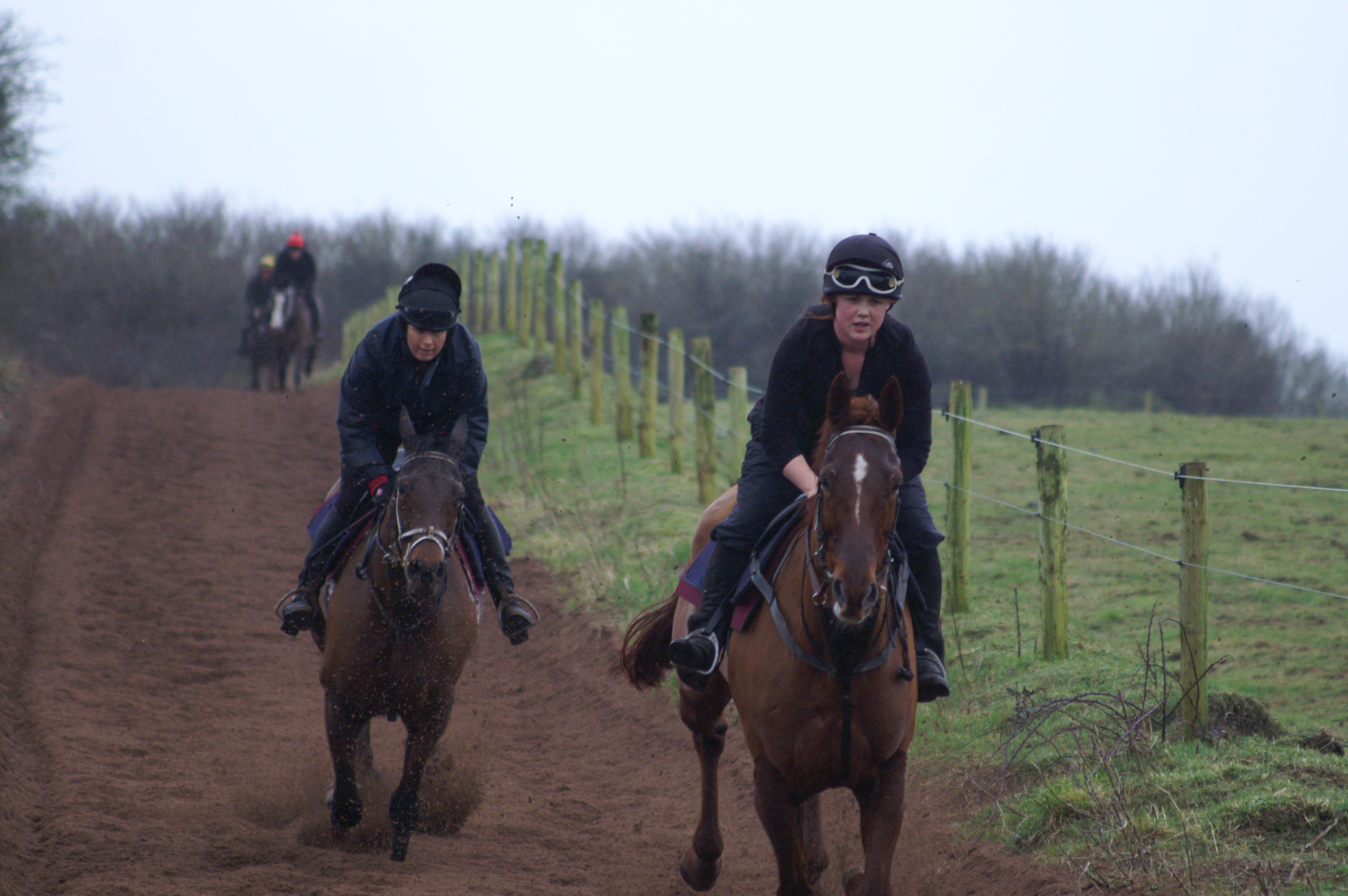Sure anyone can go to the races, but how many have had the chance to be a jockey on an Irish point-to-point racing champion, at the track, breezing him with the other professional jocks? Me (that’s me in the yellow cap at the back, where I was told to stay by the trainer, as he “was training the first two horses to finish first, which they need to do in the upcoming point-to-point this weekend.”)
I survived and am here to tell you that everything else you can do on a horse (including eventing, fox hunting, and polo) and anything else you can do in life, pales in comparison.
Horse racing is a sport where jockeys may incur permanent, debilitating, and even life-threatening injuries. Chief among them include concussion, bone fractures, arthritis, trampling, and paralysis. Jockey insurance premiums remain among the highest of all professional sports. From 2002 to 2006 five deaths and 861 serious injuries were recorded.
Because horse racing is so dangerous, an ambulance follows the jockeys around the track in preparation for an emergency. The Jockeys’ Guild receives 2,500 injury notifications in a year. The average jockey gets sidelined by injuries about three times a year. Approximately 50-60 jockeys have been totally and permanently disabled at any given time, and more than two jockeys a year are killed in North America. If you went around the track, just once, let alone 8 times like me, you’d appreciate why this is all true.
I would aspire to be a professional jockey in the US on the flats or in Ireland over fences, if I wasn’t for my age and normal build. The trailer told me, “If you lose 2 1/2 stone, I’ll give you a go in a race.” The Kentucky Derby, for example, has a weight limit of 126 pounds including the jockey and his or her equipment. Successful jockeys must also be very strong and athletic to control a horse that is moving at 40 mph and weighs 1,200 pounds. In Ireland over fences, this just expanded to a generous 142 pounds. I cannot make that now, if I ever could at 5’11”, but damn what a thrill it would be to be a professional race horse jock with 8 horses a day to train and 1-4 to ride per week over Irish hedges at 5′ tall and over a 2-3 mile point to point course over turf, just to qualify to run the bigger regional races.
Before racing in Ireland, treat yourself to the Ulster Fry and Brown Soda Bread a slightly more elaborate Northern Irish version of the full Irish breakfast. Serve with a strong Irish breakfast tea.
After racing, beware of the fact that God invented whiskey so that the Irish wouldn’t rule the world. From Bushmill’s to Paddy’s of County Cork (and only recently available in the US), they are all remarkably smooth. Try filling up on some Irish Stew and Boxty for lunch before the whiskey toasts begin.
“The good cook, like the good jockey, must have a clock in his head.” –A.J. Liebling

